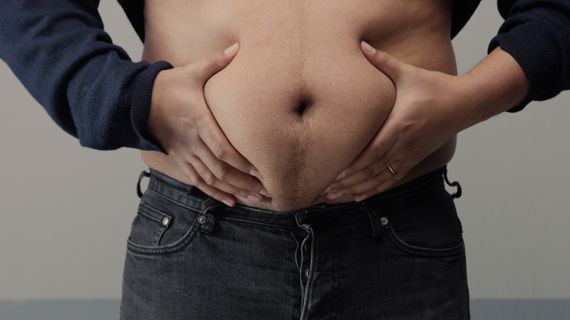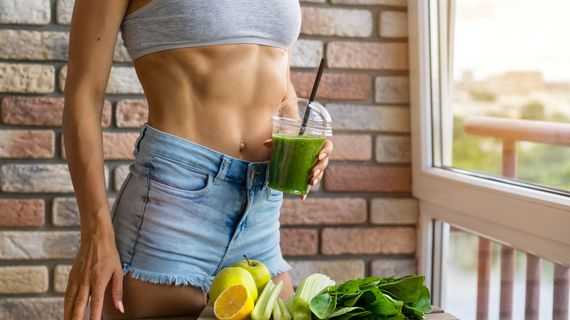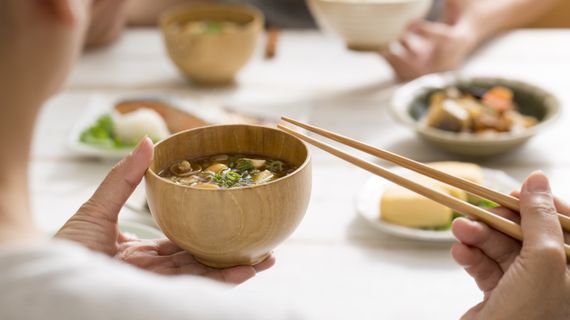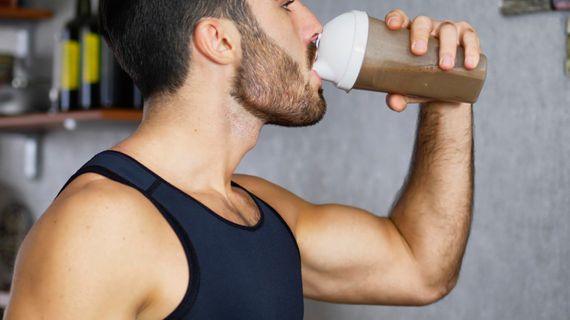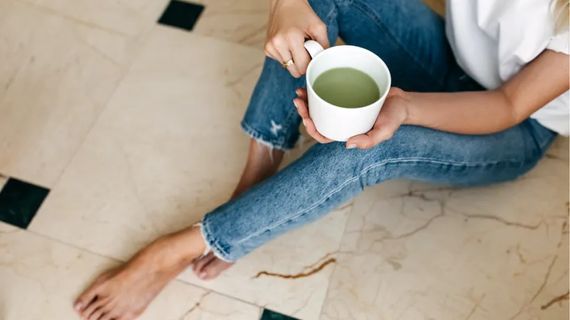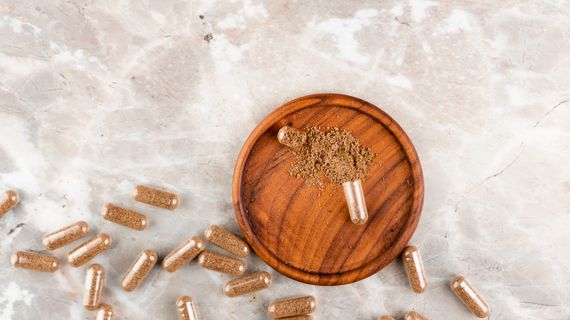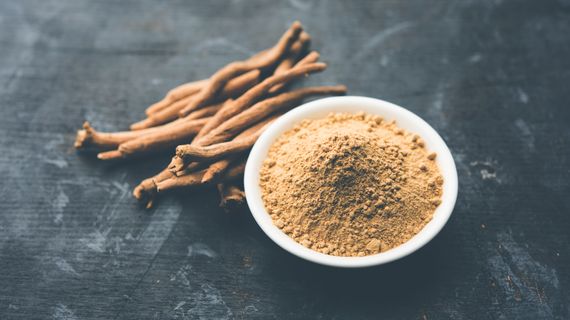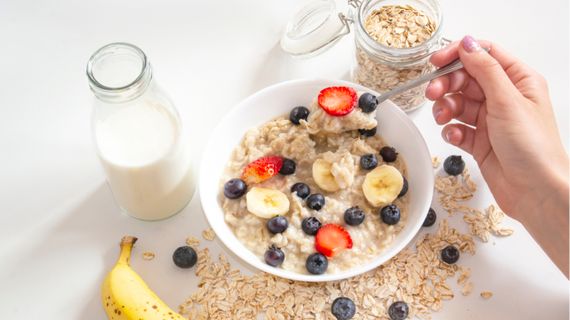- Digestive disorders are a major health problem worldwide, affecting more than 332 million Europeans, according to a United European Gastroenterology report.
- The most common digestive problems include gastroesophageal reflux disease, diarrhoea, constipation and gastritis.
- In many cases, long‑term neglect of these problems can lead to reduced quality of life in addition to chronic discomfort.
Why is it important to have a healthy gut?
It may not seem obvious at first, but a healthy gut is crucial for overall health and well‑being. While some miracle supergreens promoted by your favourite influencer won't solve all your problems, products that have a beneficial effect on the gut microbiome and gut health can almost work miracles. The digestive system, especially the intestines, plays a crucial role not only in the digestive process itself but also in the proper absorption of nutrients from food. The microbiome is a complex ecosystem of microorganisms that affects the immune system, digestion and even mood. What's more, a good quality microbiota can help prevent various diseases such as inflammatory bowel disease, irritable bowel syndrome and even some types of allergies.
By not taking enough care of your digestive system, you can set yourself up for a host of problems, including constipation, diarrhoea, bloating and weaker immunity. These issues, in turn, will affect your everyday well‑being and quality of life. Having a 'healthy' gut is therefore not just about comfortable digestion but also about ensuring that the whole body functions optimally, enabling you to achieve and maintain a healthy and active lifestyle. It is crucial to pay as much attention to gut care as you would to any other part of your body and to incorporate healthy eating and lifestyle habits that support digestive health into your lifestyle.
What role does diet play?
A big one. After all, diet is the one grace that can help your gut move normally. The key at this point is fibre, the indigestible carbohydrate component of food, which is divided into two main types: soluble fibre (which slows the absorption of glucose), found in fruits and beans, and insoluble fibre (which adds volume to stools and attracts water to the colon), found in whole grains and vegetables. In addition, fibre serves as food for beneficial bacteria in the gut, promoting the balance of the microbiome and the health of the gut lining.
Foods loaded with fibre include:
- whole grain cereals (such as brown rice, oatmeal, whole wheat bread)
- legumes
- fruits and vegetables (especially leafy greens, apples, pears, broccoli, cauliflower)
- seeds and nuts (e.g., flaxseed, chia seeds, pumpkin seeds, almonds)
These food groups are also rich in vitamins, minerals and antioxidants.
Another essential element is water. Adequate hydration facilitates the movement of food through the intestines. Moreover, fibre requires water; once absorbed, it forms a gel‑like substance that allows for better absorption of nutrients and promotes regular bowel movements. Last but not least, it is good to keep in mind the limitations of eating processed foods with high fat content and added sugar.
What about exercise?
Just like an adequate diet, regular physical activity has a role to play. Why? For one thing, it stimulates bowel movement through a process called peristalsis, which is the rhythmic contraction of the intestinal walls that helps "move" food through the digestive tract. As a result, exercise works to prevent constipation and helps keep digestive processes regular and efficient. Secondly, exercise promotes blood circulation throughout the body, including the digestive system. Better blood circulation in the digestive tract subsequently improves the delivery of oxygen and nutrients to the intestinal cells, aiding in their regeneration and optimal functioning. Regular physical activity also has an effect on stress, which can negatively affect your digestive processes and manifest as conditions like irritable bowel syndrome. Regular physical activity helps manage weight, too. Excess weight and obesity can increase the volume of visceral fat, which can theoretically take up space in your organs.
Additionally helpers
If you want to give your gut a little something extra, there are various helpers that can make your goal a little easier. What are they?
- Probiotics: These beneficial bacteria help replenish and maintain a healthy balance of microflora. They can be consumed through fermented foods such as yoghurt, kefir, sauerkraut, kimchi, kombucha and some types of cheese or as supplements (such as Vilgain Probiotics, which contain seven probiotic strains and 10 billion live microorganisms).
- Digestive enzymes: These help break down food into smaller, more digestible molecules. They can be naturally present in some foods such as pineapple (which contains bromelain) and papaya (which contains papain) or taken as dietary supplements to aid digestion, like Vilgain Digestive Enzymes.
- Herbal teas: Certain herbal teas, such as mint, ginger, chamomile or fennel, are traditionally used to aid digestion and relieve stomach and intestinal discomfort. These teas can also help relax digestive muscles, reduce bloating and flatulence and soothe the stomach.
- Greens: Greens mixes typically contain green barley, spirulina and chlorella. Due to their high fibre, vitamin, mineral and antioxidant content, they intensively support gut health, promote bowel regularity, improve digestion and even immune system function.

Other causes of digestive problems
There are many other causes of digestive problems, which may include factors such as:
- stress
- insufficient hydration
- excessive alcohol consumption
- taking certain medications
- food allergies or intolerances
- genetic factors
- poor eating habits (overeating, not chewing enough food)
What to do and when to seek medical help
For gastroenterological problems, in many cases, a partial lifestyle change is sufficient. This includes modifying the diet, adding physical activity or trying to reduce stress through practices like meditation or mindfulness. However, if problems persist or worsen, it is advisable to seek medical advice for a more detailed examination, diagnosis and treatment tailored to your individual needs and difficulties.
Some symptoms that should raise concern and indicate the need to see a doctor include:
- Severe abdominal pain: If you have severe and prolonged abdominal pain during the day or night that does not subside even after appropriate care, you should seek medical attention as soon as possible.
- Bleeding from the digestive tract: The presence of blood in the stool should be investigated immediately by a doctor, as it may indicate haemorrhoids or other digestive problems.
- Changes in the nature of your stool: If you have long‑standing issues with your stools, such as diarrhoea, constipation or changes in the texture, colour or smell, you should inform your doctor for advice.
- Adverse reactions to foods: If you suspect that you may be allergic or intolerant to a food, it is a good idea to see a nutritional therapist or allergist.
- Weight loss for no apparent reason: If you are losing weight for no apparent reason, it is a good idea to see a specialist and request an examination.
Bottom line
Indigestion is a common health problem that affects millions of people around the world. However, a healthy gut is key to overall health and well‑being. It's not just about digesting comfortably but also about ensuring the whole body functions optimally and can maintain a healthy and active lifestyle. For such problems, it is usually enough to change your lifestyle (good quality, varied diet, regular exercise, sufficient drinking), but if your problems persist, it is advisable to seek medical advice.




